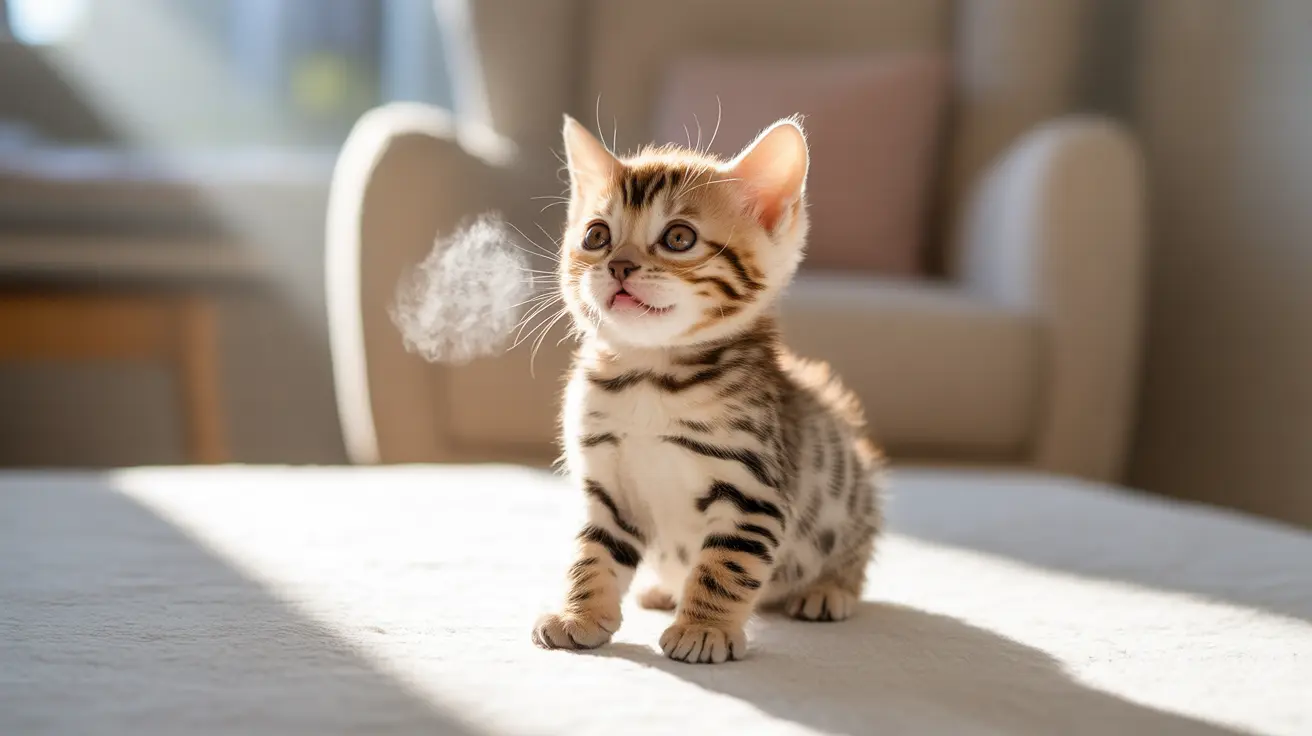If you've noticed your kitten sneezing, you're likely concerned about their health. Sneezing in kittens can range from harmless reactions to environmental irritants to more serious medical conditions requiring veterinary attention. Understanding the causes and knowing when to seek help is crucial for your kitten's wellbeing.
In this comprehensive guide, we'll explore the various reasons behind kitten sneezing, help you identify when it's serious, and provide practical solutions for both prevention and treatment.
Common Causes of Kitten Sneezing
Upper Respiratory Infections (URIs)
The most frequent cause of sneezing in kittens is upper respiratory infections. These highly contagious infections are especially common in shelter kittens and can be caused by various viruses and bacteria.
Primary viral culprits include feline herpesvirus-1 (FHV-1) and feline calicivirus. These infections often lead to symptoms such as:
- Frequent sneezing
- Runny eyes and nose
- Decreased appetite
- Lethargy
- Fever
Environmental Triggers and Allergies
Many household items can irritate your kitten's sensitive nose, leading to sneezing episodes. Common irritants include:
- Dusty cat litter
- Cigarette smoke
- Air fresheners and perfumes
- Cleaning products
- Pollen and dust
When to Seek Veterinary Care
While occasional sneezing might be normal, certain signs indicate your kitten needs immediate veterinary attention:
- Persistent sneezing lasting more than a few days
- Thick, colored, or bloody nasal discharge
- Difficulty breathing
- Loss of appetite
- Lethargy or depression
- Eye discharge or swelling
Home Care and Treatment Options
Supportive Care Measures
For mild cases of sneezing, several home care methods can help your kitten feel better:
- Use a humidifier to moisturize the air
- Keep the nose clean with warm, damp cotton balls
- Ensure a clean, dust-free environment
- Provide warm, aromatic food to encourage eating
Professional Treatment
Your veterinarian may recommend various treatments depending on the cause:
- Antibiotics for bacterial infections
- Antiviral medications for severe viral infections
- Saline nose drops
- Specialized care for underlying conditions
Prevention Strategies
To help prevent sneezing episodes in your kitten:
- Keep up with vaccinations
- Use low-dust, unscented litter
- Maintain good air quality in your home
- Regular veterinary check-ups
- Practice good hygiene in multi-cat households
Frequently Asked Questions
What are the most common causes of a kitten sneezing frequently?
Upper respiratory infections are the most common cause, followed by environmental irritants and allergies. URIs are particularly common in shelter kittens and those exposed to other cats.
How can I tell when my kitten's sneezing needs a veterinary visit?
Seek veterinary care if sneezing persists beyond several days, is accompanied by colored or bloody discharge, lethargy, loss of appetite, or breathing difficulties.
What home care remedies can help a kitten with sneezing due to a mild upper respiratory infection?
Use a humidifier, keep their nose clean with warm damp cotton balls, ensure they stay hydrated, and maintain a clean environment. Warming their food can also help stimulate appetite.
Can allergies or environmental irritants cause sneezing in kittens, and how can I reduce them?
Yes, common irritants include dusty litter, smoke, and strong scents. Reduce exposure by using unscented, low-dust litter, avoiding air fresheners, and maintaining good ventilation.
When should I worry about sneezing caused by dental disease, nasal polyps, or foreign objects in kittens?
Seek immediate veterinary care if you notice unilateral discharge, facial swelling, pawing at the face, or blood in the discharge, as these may indicate more serious conditions requiring professional intervention.
Remember, while some sneezing in kittens can be normal, persistent or severe symptoms should never be ignored. When in doubt, always consult with your veterinarian to ensure your kitten receives appropriate care and treatment.






